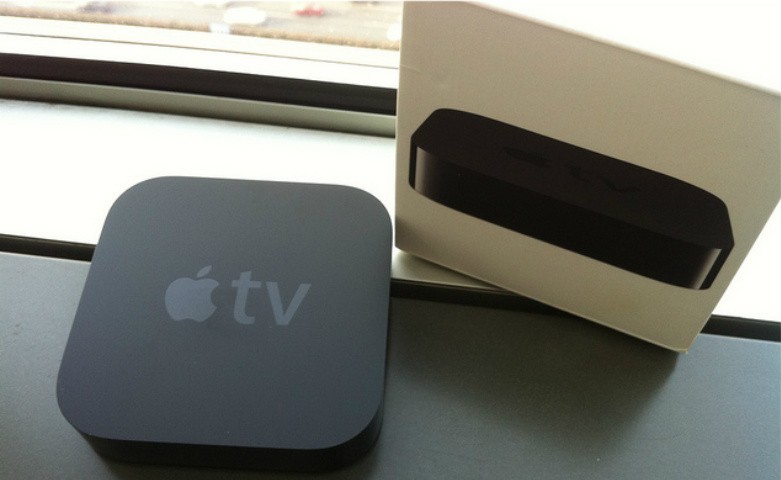
The Unholy Union Between Apple and Comcast: An Explainer
According to a report in the Wall Street Journal, Apple and Comcast are in discussions about providing “a streaming-television service that would use an Apple set-top box and get special treatment on Comcast’s cables to ensure it bypasses congestion on the Web.”
If this deal comes to pass, it’ll mean that Comcast — the nation’s most dominant broadband and cable-TV provider — is once again violating Net Neutrality.
Wait, Net Neutrality?
Yes, Net Neutrality. A court struck down the Federal Communications Commission’s open Internet rules in January — not because it objected to the principle of Net Neutrality, but because the FCC used the wrong legal theory to support its rules.
When Comcast merged with NBCUniversal in 2011, it agreed to abide by these rules even if a court overturned them. That’s why the Open Internet Order still applies to Comcast today.
So how can Comcast and Apple even talk about special treatment?
The FCC’s rules contain quite a few loopholes, including one for a poorly defined category called “managed services.” The FCC wanted to leave room for services that might need special treatment — services like telehealth applications that might use a broadband network without actually traveling over the Internet.
However, just what counts as a “managed service” is the subject of debate, and the phone and cable companies want to make it into an exception that swallows the rule. This has given Comcast an opening to claim that obvious Internet services (like, ahem, Apple’s video services) are different, and that ISPs should be able to provide special fast lanes for those services.
What kind of fast lane does Comcast want to create?
Comcast wants to give priority treatment to Apple. Instead of making its whole network more robust, Comcast wants to create a fast lane outside of the “regular” Internet solely for Apple’s use. This would divert investment away from the general-purpose broadband capacity that could provide an Internet connection capable of delivering all content quickly and efficiently.
Instead of maintaining a better network for all of us, Comcast wants to create and then profit from artificial scarcity. When “too many” people use its network, Comcast’s solution is to open a separate “pipe” for preferred videos and other content.
“Artificial scarcity”? Sounds scary!
It is! But note the word “artificial.” The only reason that Netflix’s customers using Comcast’s network experienced slowdowns, for example, was because Comcast refused to make simple and cheap upgrades to open up more entry ports for this traffic. Instead of making routine investments, Comcast would rather squeeze content providers for more money while your online experience suffers.
Comcast and other ISPs sell you a broadband connection, reap huge profits from it and promise they will deliver the speeds and content you want. But instead of making good on that promise, Comcast wants to force content providers to pay for special treatment and fast lanes — even though you already pay your ISP a ton for your connection and the ability to download and upload content.
Comcast’s behavior here violates Net Neutrality. And don’t believe for a second that companies engaging in these kinds of schemes will pass any savings along to you once they’ve built toll roads and started collecting from companies like Apple, Netflix and Amazon. (In fact, in his sales pitch for the disastrous Comcast-Time Warner Cable merger, Comcast’s top lobbyist has already promised that the deal will not lower customers’ bills.)
The phone and cable companies don’t want to break even to give you a discount. They want to boost their revenues at any cost.
What does this mean for the future of the Internet?
Comcast wants to remake the Internet as a big, unfriendly, closed-down cable system — with a twist: Instead of Comcast paying content providers for the rights to carry their stuff, those providers will have to pay Comcast.
Comcast’s justifying this on the bizarre theory that online video providers are “dumping” too much traffic onto broadband networks — as if broadband customers themselves aren’t already demanding that traffic, and paying their ISPs for it.
In this scenario, Comcast provides substandard service to its Internet subscribers while offering a separate service for Apple TV users. Comcast gets new fees in new places — all while neglecting the rest of its network. Nice work if you can get it.
This would be bad for Comcast customers, who’d continue to pay high prices for a network that doesn’t work as promised. It would be bad for any present or future video startups, which wouldn’t be able to compete with Apple by paying for their own fast lanes. And it would be bad for innovators and Internet users who want to use the network for creative purposes other than streaming video.
How do we stop this?
Internet users want universal access to broadband networks that let people send and receive high-quality voice, video and data content. And the only way to get that is through policies that place abundance — robust and fast networks — above all else.
We need the FCC to once again embrace common carriage, which prohibits the companies we pay to carry our communications from engaging in discriminatory behavior. Common-carrier rules would prevent the owners of this infrastructure from playing the Monopoly game of profiting through artificial scarcity.
We can get there by passing strong Net Neutrality rules, promoting competition, preventing discrimination and protecting broadband users — but only if the FCC reclassifies broadband as a telecommunications service.
Original photo by Flickr user Julien Gong Min